Text
How to Make a Study Plan for Final Exams
It’s that dreaded season once more so I decided to create a post based on what I’m currently doing for my master’s degree final exams, and hopefully it’ll end up helping someone else out there too!
Step One: How many days do you have left?
Create a schedule that has the dates from when you can start to preferably one week before your exams start. This will give you enough time to allow for any unplanned events or circumstances that prevent you from studying on any particular day. If you don’t have enough time between now and your exams to take a week off, then be sure to plan extra long breaks, or one day off a week up until your exam date to account for unplanned events as well
Plan out your week and fill in all prior requirements, appointments, events, etc. This includes your school or university classes, extra curricular activities, things like doctor appointments or social events. But it should also include necessary things such as meal times, sleep, and breaks
Step Two: Figure out your learning style.
By this, I don’t mean whether you’re a visual or auditory learner, because that’s something that could easily take up it’s own video. So, what do I mean by your learning style?
This is when you’re most productive. Are you a morning person or a night person? Or a mid-afternoon person? Or even a it-honestly-changes-every-day person?
How long can you focus for? Half an hour? Two hours? More?
How long do you need a break for to refocus? Five minutes? Fifteen minutes? Longer?
This will help you figure out how much time you need for each subject, as well as how long you can study for each day while still preventing burnout and fatigue (at least, insomuch as that’s possibly during exam time!)
Step Three: Make a list of all your topics.
Go through all of your subjects that you have exams for and make a list of subtopics for each subject.
Hopefully your professor has given you a syllabus for your class, or even better, an exam cheat sheet of all the possible topics that’ll come up on the test.
If you can, try to assign times to each subtopic if you know approximately how long you need to study each topic. If you don’t know, then assign approximate times to the subtopics, but be sure to give yourself more time than you think is necessary just in case one topic takes longer than expected.
A good approximation (in Europe, at least) is two hours of study for every one hour of class time. So if you’re taking 15 credits of classes, you should spend roughly 30 hours studying. If you’re taking 60 credits of classes, then you should spend about 120 hours studying.
Step Four: Add topics to your schedule.
Look at the time that you have left in your schedule and assign subtopics to the empty time blocks.
You can do one subject a day, such as Mondays for maths, Tuesdays for English, or you can mix things up, and do History in the mornings and Computer Science in the afternoon (although its worth noting in this case, to schedule the most difficult subject during the time you’re most productive, and the “easier” subject during the opposite part of the day!)
Take into account how difficult each subject is. For example, if you really struggle with Spanish but you’re acing geography, then don’t put equal weight on those two subjects. Instead, give Spanish more time because chances are, it’ll take you longer to do the same amount of work.
Also consider the type of studying that you’ll be doing for each subject. Maybe you’re really good at biology but you know it’ll take you a few hours to draw out those diagrams. Maybe you’re failing English literature but you’re a fast reader. Change the amount of time given to each subject depending on the type of studying that’s required
Step Five: Actually study.
Now its time to put your schedule to use. Maybe you have a ton of self-discipline so this isn’t a problem for you, but maybe you don’t so you havie to send your schedule to a family member or friend so that someone else will hold you accountable for following it.
Don’t forget to take breaks. You should stand up, walk around, stretch, have a snack, refill your glass of water, or even do a light or heavy exercise. Talk to your roommates, call your grandma, or run to the store real quick. The aim is to get you out of your study space and get your body moving so that when you return to your desk, you feel refreshed and ready to go once more
Bonus: Problems.
Here are the top three pitfalls that most people fall into when creating study schedules.
Overcommitting. The biggest problem that I see people face is overestimating just how much they can get done in a day. This is why I say to give yourself extra empty days and overschedule your tasks, so that even if something does take longer than expected, your schedule hasn’t been completely derailed.
Not scheduling enough breaks. I cannot overstress the importance of taking regular breaks while you study. Whether it’s for twenty minutes or even just five, you need to remove yourself from that study environment and allow your brain to readjust. You must give yourself time for the information to sink in, and the last thing you want is to be hungry, thirsty, or tired while trying to study for an exam.
Not adjusting your plan. This ties into the previous point. If it doesn’t work for you, then change it. If you need more breaks, then add more. If you initially thought that you could focus for an entire hour but then realise that half an hour is better, then adjust your schedule as needed. This is your study plan. No one is making you follow the first draft. So change things when you have to, because otherwise you’ll find yourself exhausted and burnt out, and nobody wants that!
60 notes
·
View notes
Text

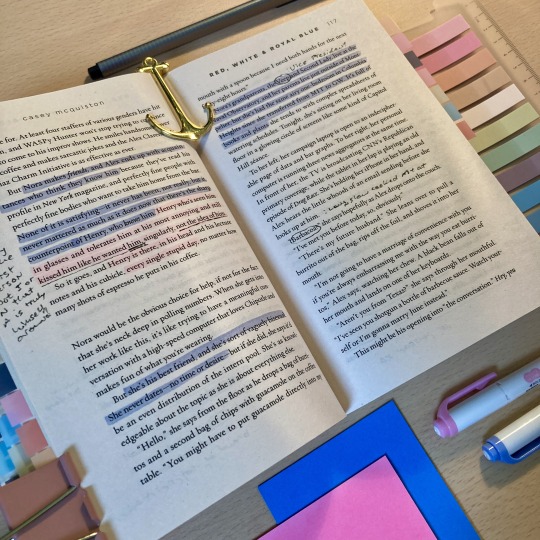

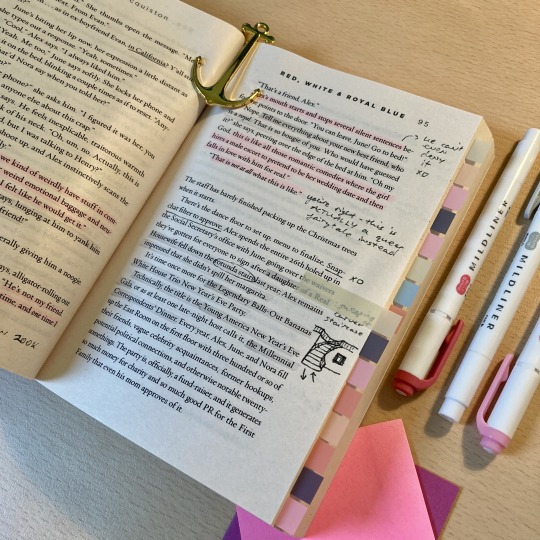
-> my bookstagram
12 notes
·
View notes
Text




overcast days
4 notes
·
View notes
Text
Easy Study Motivation Tips
We all know that it can be hard to stay focused and keep up with our studies, but it’s important to remember that the hard work will be worth it in the end. So here are some tips to help motivate you:
Set a goal for yourself. Having a clear goal in mind will help you stay focused on the task at hand. Whether it’s doing well on an upcoming test or finishing all your reading for the week, having a specific goal will help you stay focused and motivated.
Break up your study sessions. Studying for a long period of time can be overwhelming. Breaking up your study sessions into smaller chunks can help you stay focused and be more productive. Divide your work into smaller, more manageable chunks. This will help you stay on track and make progress.
Find a study buddy. Having someone to study with can help you stay motivated and on task.
Reward yourself. Don’t forget to reward yourself for your hard work. Whether it’s a small treat or a night out with friends, it can be a great way to stay motivated and remind yourself why you’re studying in the first place.
Stay positive. It can be easy to get discouraged when studying, but it’s important to stay positive and keep your eye on the prize.
Good luck with your studies!
115 notes
·
View notes
Text




-> my bookstagram
4 notes
·
View notes
Text




high-key obsessed with these views
5 notes
·
View notes
Text
How to Read More (if you're a slow reader)
1. Accept Your Pace: Embrace the fact that you read at your own pace, and that's perfectly fine. Slow reading can offer a deeper understanding of the text and there are no prizes for reading fast (unless you're in a speed reading competition I guess but that's not what we're talking about here)
2. Set Realistic Goals: Instead of focusing on quantity, aim to read a certain number of pages each day. Consistency matters more than speed and it's super helpful to actually break your reading down into smaller, manageable sections such as "10 pages a night" rather than "read for an hour".
3. Reading Aloud: Try reading aloud. It may help you to concentrate and understand the material better. Or, use your finger or a pen to guide your reading. It can help maintain your focus and prevent wandering eyes.
4. Eliminate Distractions: Find a quiet, distraction-free environment for your reading. A calm setting can help you focus and settle in to your reading session. Avoid rushing through a book. Make it a relaxing experience.
5. Audiobooks: Consider listening to audiobooks in conjunction with your reading. This multisensory approach can enhance your understanding. Or, if you're comprehension levels are naturally higher for aural rather than visual, consider just listening to audiobooks full stop!
34 notes
·
View notes
Text
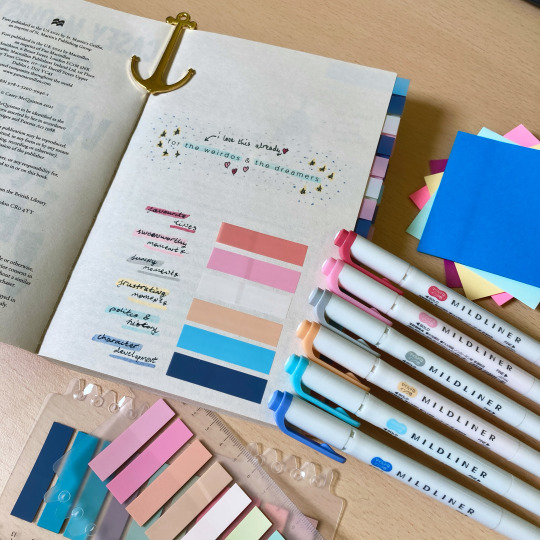

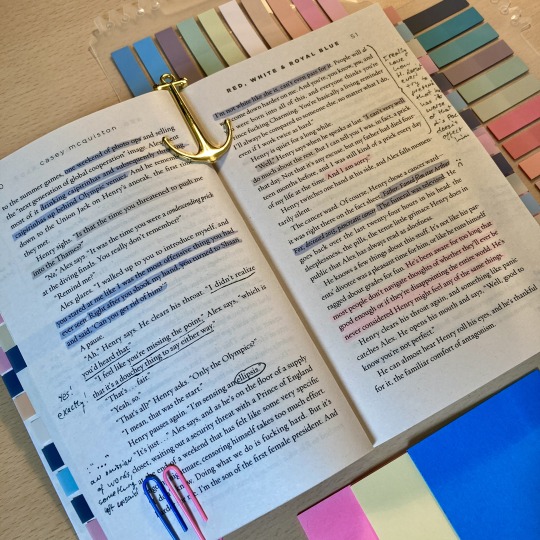
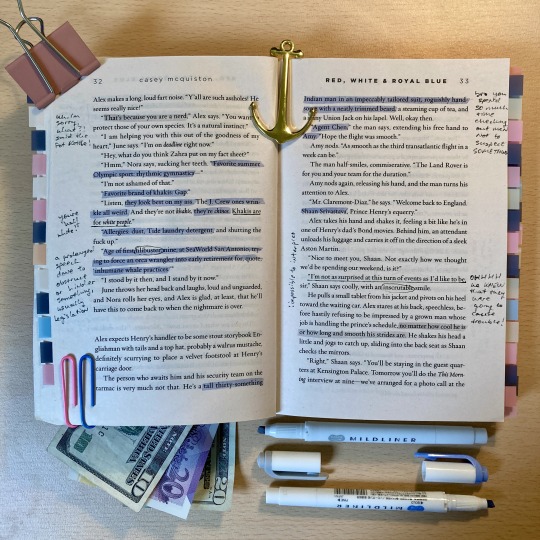
-> my bookstagram
8 notes
·
View notes
Text
youtube
Studio Ghibli Background Music to Study, Read, & Work - 1 hour
0 notes
Text
How to Get Sh*t Done in a Study Group
1. Choose the Right Group: Surround yourself with motivated peers who share your academic goals and work ethic. Diversity in skills and knowledge is a plus.
2. Set Clear Goals: Clearly define the purpose of the group study session, what topics you'll cover, and what you want to accomplish.
3. Divide and Conquer: Assign specific topics or subtopics to each member to become experts in. This way, you can teach and learn from each other effectively.
4. Organize Your Session: Create a structured agenda for your study session with designated start and end times. Stay on track!
5. Active Participation: Actively engage with the material. Encourage everyone to ask questions, discuss concepts, and offer insights.
6. Share Resources: Pool your resources, textbooks, notes, and online references. Sharing is caring!
7. Teach Each Other: Teach what you've learned to your peers. Teaching is one of the best ways to reinforce your understanding.
8. Quiz Each Other: Use flashcards or ask questions to quiz one another. It's a fun way to test your knowledge.
9. Encourage Discussion: Foster a collaborative environment where ideas flow freely. Encourage healthy debates and brainstorming.
10. Take Breaks: Include short breaks in your session to relax and recharge. A quick breather can boost productivity.
11. Stay Organized: Keep track of assignments, deadlines, and study schedules as a group. Use shared calendars or apps for easy coordination.
12. Recap and Summarize: At the end of your study session, summarize what you've learned and make a list of action items for your next individual study sessions.
13. Mutual Support: Offer support, motivation, and encouragement to each other. A strong support system can make a big difference.
14. Be Mindful of Size: Keep your study group relatively small. Smaller groups tend to be more focused and productive.
15. Reflect and Adjust: Periodically assess the effectiveness of your group study sessions and make improvements as needed.
35 notes
·
View notes
Text
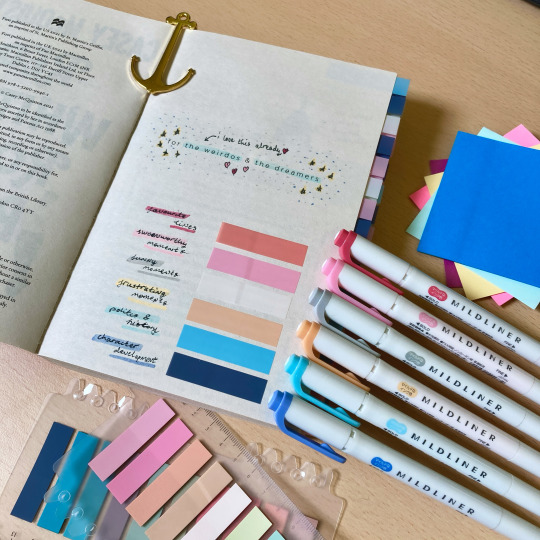
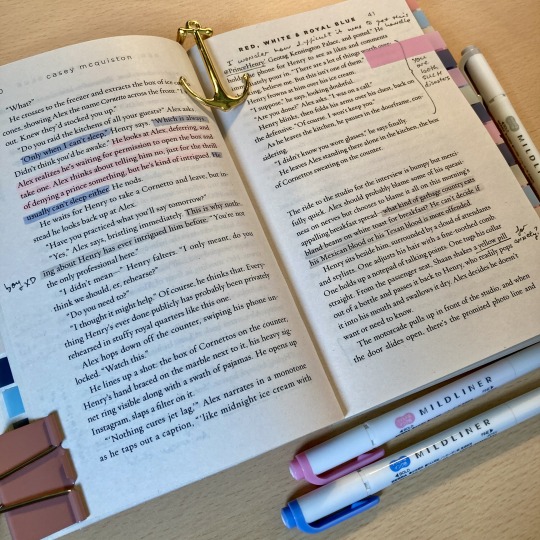

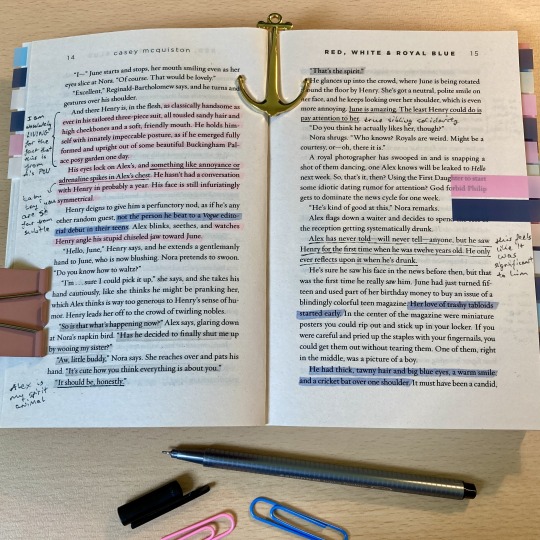
-> my bookstagram
2 notes
·
View notes
Text




soooo guess where i went last weekend?
13 notes
·
View notes
Text
Balancing Study and Personal Life
So I have received a LOT of different asks about this and also took a long time to answer since it took me a long time to figure out this balancing act myself. In saying that, however, here are ten tips that will hopefully help!
Prioritize and Plan: Assess your academic and personal obligations and create a schedule that accommodates both. Prioritize what's most important each day.
Set Boundaries: Clearly define your study time and leisure time. Avoid the temptation to overextend your study hours.
Quality Over Quantity: It's not about how many hours you study; it's about the quality of your study sessions. Focus during your study time to make it count.
Learn to Say No: Don't be afraid to decline additional commitments when your schedule is already full. It's okay to say no.
Self-Care Matters: Make time for self-care and relaxation. It's essential for recharging and maintaining mental and emotional well-being.
Stay Organized: Use planners, to-do lists, and reminders to stay organized and on top of your responsibilities.
Efficiency Tips: Study smarter, not harder. Use time management techniques and productivity hacks to make the most of your study time.
Communication is Key: Talk to your friends, family, or roommates about your study schedule, so they can respect your study time and support your efforts.
Combine Activities: If possible, merge personal tasks with academic ones. For example, listen to educational podcasts while commuting.
Reflect Regularly: Assess your balance periodically. Is it working for you? Make adjustments as needed.
Remember, balance is not about dividing your time equally between study and personal life, but about finding a rhythm that suits your goals and priorities!
41 notes
·
View notes
Text

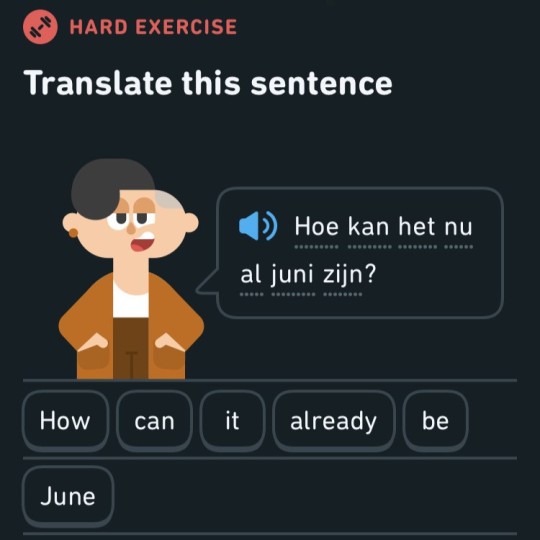




Duolingo Dutch but it's Gen Z edition
6 notes
·
View notes
Text
Iconic Things My Coding Professors Have Said (Part 9)
“i did my phd on him. so i spent six years with this one guy, which, normally, would be a sign of a healthy relationship, but not in this case”
prof 1 “don’t worry about the oral exam, it’s great fun!” prof 2 “yeah… for us”
"linguistics should bear in mind that non-linguistics, or, as i like to call them, normal people, don’t understand this”
student “you mentioned in the previous slide a lot of extra readings” prof “yes” student “would you suggest that we read-” prof “no”
“it could be an issue with your data. As we like to say in the machine learning world - garbage in, garbage out, wha’d'ya expect?”
“so if there are no other questions, then you have the homework, you know your test date, and i wish you a lot of… strength. For both of them”
“Today we’re going to be talking about-” *dramatic pause* “-the SPACE PROBLEM!" *everyone cheers* "Now, now, settle down, before you get too excited, I don’t mean the space, moon, buzz aldrin, astronaut, nasa, super cool and exciting space problem… I mean the computer space problem. Like indexing”
“the next example is a lot more substanial, so if you look at this and you think, whew, this is a lot of work, then… uh, yeah, you’d be right”
prof 1 “think of what we can do with technology now, especially in this area. Where are the ethics? We have these… how should I say… uh… gosh, i don’t know how to phrase this… there’s really no polite way of putting it… um… lets say… ‘companion’ robots?” prof 2 “you mean sex bots” prof 1 “well OBVIOUSLY i meant sex bots, david, but i didn’t want to say that!”
“unfortunately it’s necessary for you to go through this. you need to study and learn and do the assignments and do the exams and, yes, you must suffer… but enough with the damnation sermon, let’s move onto the next chapter of hell”
“you need to find similarity in all the different tasks and then try to wisely use copy and paste. look at me, look. at. me. i said wisely”
student “i used 11 output features instead of 10" prof "okay. and?" student "i just want to know if that was wrong to do" prof "did it work?" student "yeah" prof "then yeah. what do you want me to do? if it works, don’t question it”
“if you don’t save everything to your google drive then you might lose it, so for example, if you spend an entire day working on this machine learning assignment and you forget to save it, then you might just be ever so slightly disappointed”
“we decided to switch from r to pytorch because we decided that the lives of students were too easy so we wanted to make everything even more difficult” *awkward silence* “that was joke” *nervous laughter* “not really though”
“we’ll be examining this horrible horrible subject through a very appropriately named program known fondly as brainfuck”
“i’m already looking forward to the christmas party where my uncle will ask me ‘so you make software for libraries huh? but libraries don’t need software’ and i can say ‘well aunt sarah doesn’t need you either, daniel, and yet you’re still around’ and then i can explain what i do to him”
Part 1 | Part 2 | Part 3 | Part 4 | Part 5 | Part 6 | Part 7 | Part 8
Part 9 | Part 10 | Part 11 | Part 12 | Part 13 | Part 14
80 notes
·
View notes
Text




edinburgh
4 notes
·
View notes
Text


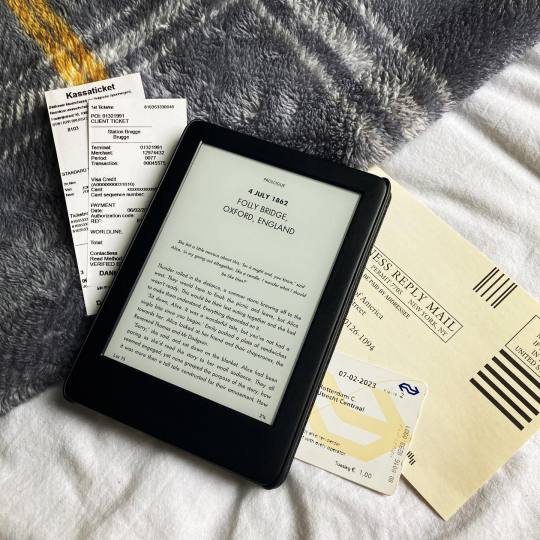

🎩 What do you do to get out of a reading slump?
I’m absolutely dreadful when it comes to this - either I read five books in two weeks or I don’t read at all for six months 😭 The only method that has worked for me to get back into reading is to ignore my current read and pick up something completely different 🌈 I’m super happy with my current choice because this book is making me love reading again! ✨
-> my bookstagram
45 notes
·
View notes